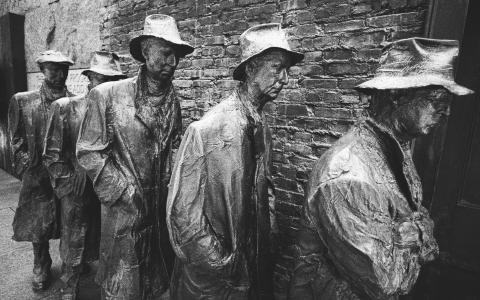
(Fortune) - A legendary investor whose expertise lies in major stock crashes says the market is heading toward a burst bubble, akin to the crises seen in 1929 and 2000.
British billionaire Jeremy Grantham is cofounder of investment management company GMO, which reportedly handles a near $65 billion in assets.
Grantham, estimated to be worth $1 billion himself, previously estimated an 85% likelihood that the stock market would crash but has since downgraded that to 70%.
Despite the figure dropping, Grantham is convinced the market has created a perfect storm for bubbles—such as asset prices—to burst, but said the emergence of artificial intelligence has delayed the pop.
Speaking to WealthTrack in an interview published over the weekend, Grantham, who specializes in long-term investment strategy, said stocks had benefited from an “almost perfect” environment for nearly a decade.
“I’m only interested in the really great bubbles like 1929, 2000, and 2021, [which] are the three senior bubbles in [the] U.S stock market. We have checked off pretty well every one of the boxes,” he said.
Grantham, who now heads up a family foundation in his own name which specializes in green investments, said these “boxes” are periods of long economic upswings, a strong bull market, and strong earnings.
In each of these scenarios Grantham points out that the markets were then followed by a “sharp leg down.”
In 1929 it was Black Thursday when $14 billion was wiped off the market in a single day; in 2000 the Nasdaq lost 76.81% of its value in less than two years; and in 2021 it similarly took a 10% hit.
Grantham said that a rally before his predicted crash was “all present and correct,” pointing out that the S&P 500 had a 20% rise in June compared with its October low.
Grantham’s gloomy predictions have a track record of being right.
Two years ago Grantham similarly told WealthTrack he expected to see a bubble of “epic” proportions because a number of different markets were trading at extremes: variously the housing market, the “meme” stock market, and the bond market operating at extreme lows.
A year later many of these assets saw major corrections, with meme-motivated shares like movie-theater company AMC seeing a massive drop-off by the summer.
Given that the impact of such an implosion could range from the desolation of the 1929 crash to the “respectable” recession of 2000, Grantham questioned: How quickly and for how long will the economy go down? How low will profit margins fall?
“They have fallen a decent bit already, but they could do a lot worse. And how badly other economic variables will be—the trouble within global trade, the trouble with China, the trouble with the war. And how will that play out? It’s very difficult to tell.”
A.I. ‘mini-bubble’
Grantham said he was “disturbed” by the emergence of a so-called mini-bubble which has ballooned as a result of disrupters in the tech industry.
Businesses like Microsoft—which mentioned the phrase “artificial intelligence” 50 times on an earnings call in April—have seen massive growth to their share price.
Meta is enjoying similar returns, with CEO Mark Zuckerberg’s wealth spiking by around $40 billion—courtesy of the shares he owns in the platform—since making announcements about pivoting from the metaverse to focus on A.I. products and services.
Grantham said he is currently unsure as to whether A.I. will be “quick enough and strong enough” to keep the market bubble from bursting.
The investment expert said the emergence of technologies like ChatGPT was the reason he had scaled back his prediction of a “ridiculously high” 85% chance that the market would burst—to 70%.
However he countered that the A.I. rally was a niche market, explaining: “Lord knows this was complicated before A.I. raised its ugly head. We had inflation, the Fed, how quickly would rates go up, how far would they go up, how would the war play out—it goes on and on.
“Now we have, since ChatGPT and October and November last year, we have a new little flurry of interest that is very concentrated.”
How far the technology will go to change the course of the market depends on whom you ask, Grantham pointed out, saying there is a “scramble” of opinions on how the technology will impact society.
“Some of the brightest people on the planet say it’s all nonsense, it’s just a parrot learning by trial and error. Other people say it will change everything, it will double productivity and everything in between,” Grantham noted.
Grantham’s guess is that A.I. is not operating on the same timescale as the bubble in the near future he is predicting: “We have a year or two here to have a fairly traditional bubble losing air, a fairly traditional recession, and fairly traditional decline in profit margins and some grief in the stock markets. We can do that before the real effects of A.I. kick in.”
This story was originally featured on Fortune.com.
By Eleanor Pringle



